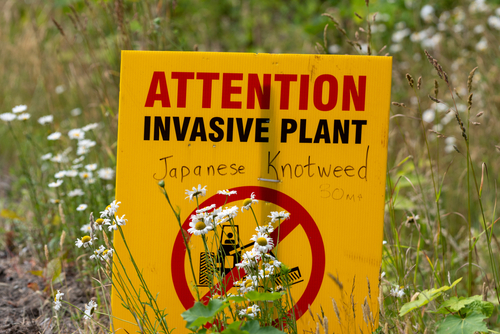
Japanese Knotweed remains a major problem for a property sale - and that’s despite a recent study suggesting that the growth is relatively harmless.
Leeds University and engineering firm Aecom found “no evidence” of Japanese Knotweed being a problem to properties and claimed it ““posed no more of a threat ... than trees, climbers and other shrubs”.
However, legal experts are warning the industry that legal obligations remain in place should the invasive species be found on a property for sale or to let.
Joanne Ellis, a partner at national law firm Stephensons, says people must remain remain vigilant or face the threat of prosecution or civil proceedings.
“While the destructive nature of Japanese Knotweed may be unclear, from a legal standpoint it’s much more straightforward. Under the Environmental Protection Act 1990, Japanese Knotweed is classed as ‘controlled waste’ and must be disposed of safely and securely once it’s identified.
“Japanese Knotweed is not just a weed or irritant – its presence and spread can be a legal nuisance and a court may decide you have acted negligently in not treating it at all or not treating it correctly. This is in addition to the detrimental effect the plant can have on the value of your property or that of your neighbours.
“Seeking specialist treatment and legal advice as soon as the plant is discovered is essential. Simply digging it out could actually be a criminal offence.”
If an owner/seller fails to treat Japanese Knotweed on their property and it either transfers to another property or its proliferation has a knock-on effect, they can be liable to legal action.
Ellis says firstly, those affected can seek an injunction to force the landowner to take action to remove the knotweed. This can include treatment costs, damages for the impact on the value of affected properties and further damages for any impact on the enjoyment of those properties.
She says that considering the damage that knotweed can do – above and below ground – it is not inconceivable that damages could run into the hundreds of thousands.
In addition to an injunction, more recently introduced powers provide another opportunity for redress for affected land owners. The Antisocial Behaviour, Crime and Policing Act 2014 is used to protect against any pattern of behaviour which has a detrimental effect on quality of life. This can – and is – used to apply to knotweed.
Local councils and the police can issue a Community Protection Notice against the offending party – following written warnings about the anti-social behaviour. Failure to comply with such a notice, without reasonable excuse, is a criminal offence which could result in a fine or prosecution.














.png)


.png)




Join the conversation
Be the first to comment (please use the comment box below)
Please login to comment